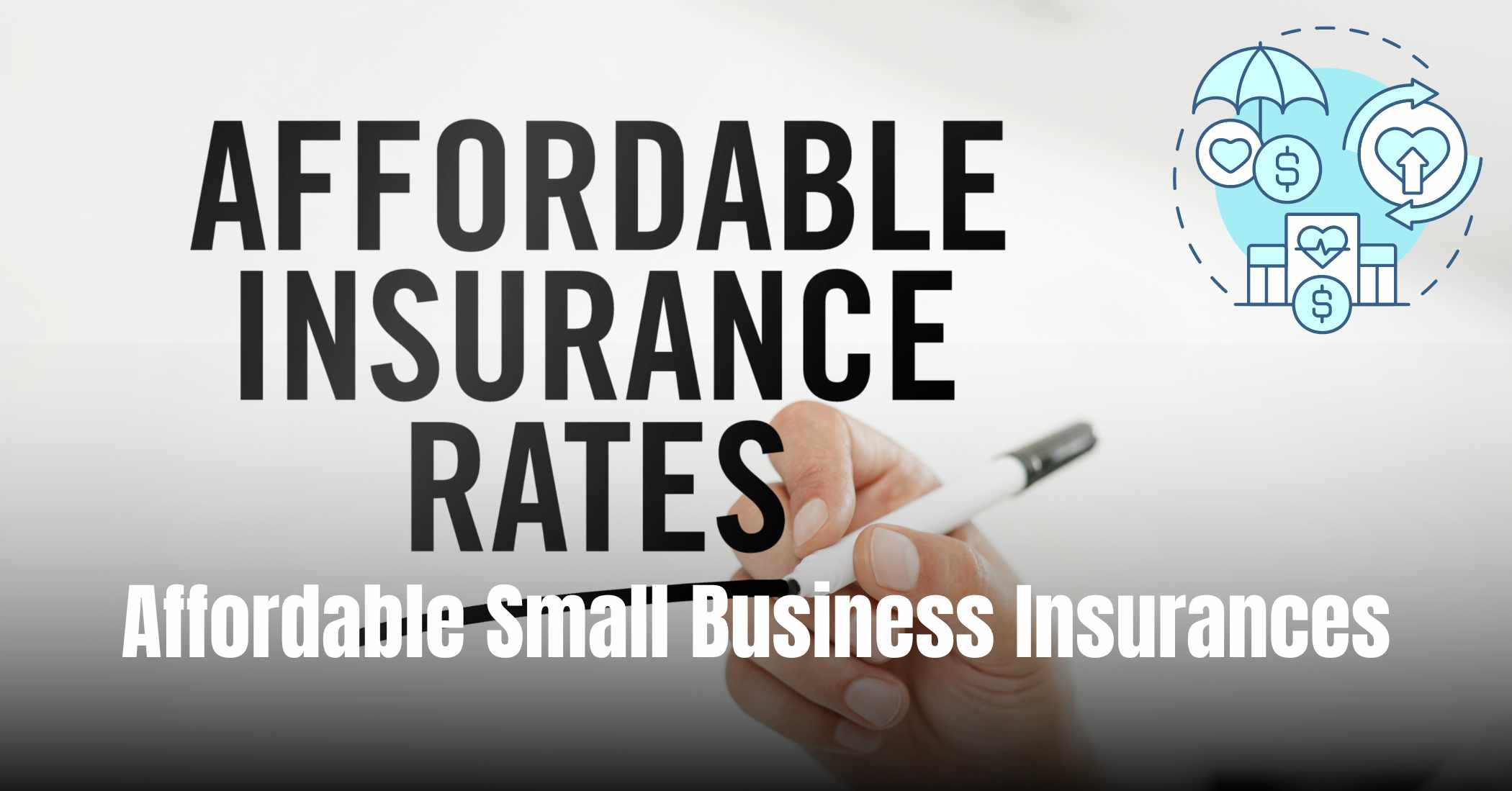As a small business owner, safeguarding your enterprise against unforeseen events is crucial for its sustainability and growth. Affordable small business insurance can provide the necessary protection without placing undue financial strain on your business. In this article, we’ll explore the various types of affordable insurance options available for small businesses and how to choose the right coverage for your needs.
Types of Small Business Insurance
1. General Liability Insurance: This is the most basic form of business insurance that covers legal fees, settlements, and medical expenses in case someone is injured on your business property or if there are property damages or personal injury claims against your business.
2. Professional Liability Insurance: Also known as Errors and Omissions (E&O) insurance, it protects your business against claims of negligence, misrepresentation, or inaccurate advice. This type of insurance is particularly important for service-based businesses such as consulting firms or financial advisors.
3. Business Owner’s Policy (BOP): A BOP bundles general liability with property insurance at a reduced rate. It’s a comprehensive package that protects your small business from property damage, peril, business interruption, and liability.
4. Workers’ Compensation Insurance: If you have employees, most states will require you to have workers’ compensation insurance. It covers medical costs and lost wages for work-related injuries and illnesses.
5. Cyber Liability Insurance: With the increasing threat of cyber-attacks, this insurance is becoming essential for small businesses. It covers your business against data breaches and other cyber security issues.
6. Commercial Property Insurance: This protects your business’s physical assets from fire, explosions, burst pipes, storms, theft, and vandalism.
7. Commercial Auto Insurance: If your business owns vehicles, commercial auto insurance is necessary. It covers the vehicles that carry employees, products or equipment.
How to Choose the Right Coverage
1. Assess Your Risks: Think about what kind of accidents, natural disasters, or lawsuits could damage your operations. For instance, if you’re in an area prone to floods, you’ll want to ensure that you’re covered for that specific risk.
2. Understand Policy Limits: Make sure you understand the maximum amount the insurance company will pay under a certain insurance policy. You need to decide the level of coverage you need based on the potential risks involved in your specific industry.
3. Compare Quotes: Shop around and get quotes from multiple insurance providers to find the most affordable policy that fits your needs. Don’t just look at the price – consider the coverage provided as well.
4. Read the Fine Print: Make sure you understand what’s included in the policy and what’s not. Be aware of any exclusions or limitations before you purchase the policy.
5. Consider a Higher Deductible: Choosing a higher deductible can lower your premium costs. However, make sure that you can afford to pay the higher deductible if you need to make a claim.
6. Review Annually: As your business grows and changes, so do your insurance needs. Review your coverage annually to ensure it still meets your needs and make adjustments as necessary.
Finding Affordable Options
1. Professional Associations: Sometimes professional groups offer discounted insurance to members.
2. Bundling Policies: As mentioned earlier with BOPs, bundling multiple types of insurance from one provider can reduce costs.
3. Managing Risks: Implement safety protocols to minimize the likelihood of claims. A safe working environment could qualify your business for lower premiums.
4. Work with an Agent: An insurance agent can compare policies from different carriers on your behalf and help you find the best rates for the coverage you need.
While no one wants to think about the potential negative events that could impact their business, being prepared with the right insurance can make all the difference in times of trouble. Affordable small business insurance doesn’t mean inadequate coverage; it means finding the right balance between protection and cost. By thoroughly assessing your risks, comparing quotes, and reviewing your policies regularly, you can protect your small business without breaking the bank.


really good information